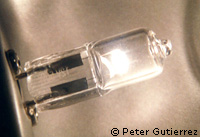Commission sets out action plan for biomass
The European Commission has published an action plan designed to increase the use of energy from forestry, agriculture and waste materials using biomass. The plan outlines measures in three sectors - heating, electricity and transport - and proposes more than 20 actions, most of which should be implemented from 2006 onwards. The EU currently meets four per cent of its energy needs from biomass. But it would be possible to more than double biomass use by 2010, believes the Commission. If such a target was met, not only would Europe be less dependent upon imported energy, but would see a reduction in greenhouse gas emissions of 209 million tonnes every year. Increased use of biomass would also lead to new jobs, particularly in rural areas, and to downward pressure on the price of oil. 'This plan will reduce Europe's dependence on imported energy, cut greenhouse gas emissions, protect jobs in rural areas and extend the EU's technological leadership in these sectors,' said EU Energy Commissioner Andris Piebalgs. In terms of research, the Commission pledges in the action plan to encourage the development of an industry-led Biofuel Technology Platform, and to look for the best way to advance research into optimising the use of agricultural and woody crops for energy purposes. The Commission also states its intention to give high priority to research into 'bio-refineries', finding valuable uses for all parts of the plant, and to also make research into second generation biofuels a priority. Other actions in the plan include drawing up new specific legislation on renewable energy in heating, amending the directive on the energy performance of buildings in order to increase incentives for renewable energy, setting national targets, and supporting developing countries that wish to produce biofuels. The document also proposes promoting waste management techniques that reduce the environmental impact of using waste as fuel, developing technical standards to enable recovered materials to be considered as goods, and encouraging investment in energy-efficient techniques for the use of waste as fuel. The action plan has been welcomed by Mechtild Rothe, German MEP and President of the European Forum for Renewable Energy Sources (EUFORES). 'This is the missing piece of legislation beside directives covering electricity and transport,' she said. Also published on 7 December was a report on producing electricity using renewable energy sources. The report concludes that over half of EU Member States are not doing enough to support green electricity.



